The Pelican’s Precious Feather
(
28.07.2007
)
The Most Forward Fronts of Culture
“I could be bounded in a nut shell and count myself a king of infinite space”
Hamlet, William Shakespeare
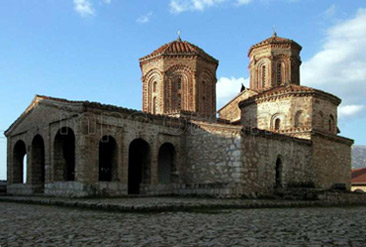 Thus spoke the most sincere monk among the princes…
Thus spoke the most sincere monk among the princes…
Freedom cannot be abolished. Just like trace, the layering throughout the time of which the end is far off. This is important for us to remember especially now that we are facing the illusion of agnosticism, which confronts both reality and God. To remember the time we are in is a time of technical redundancy and satiation with life as offered to us. Deprived of dream and yearning we wander as shadows that are attempting to self-realise, self-define not through thinking, creating but through the banality of survival. In clash with ourselves, we flop like a fish out of water, striving to swallow the last drop of the mud in which we have messed ourselves up over our head, as if we would manage to come closer to the vision that will enable us to see ourselves better. The people at this moment in this cultural environment are in anticipation of being catapulted from the space in which they have been persistently and nearly hopelessly trying to anchor themselves, to take roots. The space we live resembles a glass with limited capacities, in which there have gathered to many drops with useless and incorrect exercises in style and meaning, and so all seems stuffy and abysmal. In the thus partly formulated conditions of existence in Macedonia, culture as a fragment of society attempts to confirm, establish and develop, both diachronically and synchronically, its values and monuments.
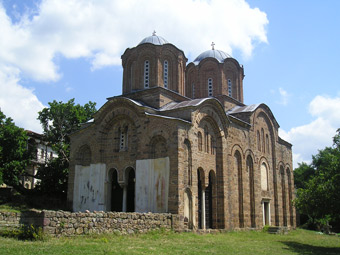
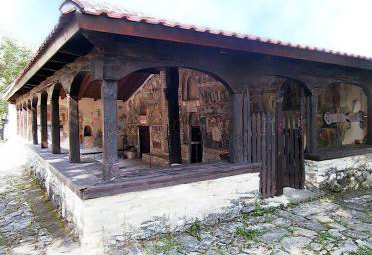
How do we go back
Edouard Herriot says: “Certain segments of culture are what remains when we forget everything”. And, such segments are the ones linked with spirituality and with the capability of them who in history, both the ancient and this contemporary, the current one, have found themselves at the most forward fronts of all that pertains to the notion culture, they who have lost almost nothing of their own meaning. They transform, reform themselves throughout their lasting, following the time dynamics, yet they are here to remind us that it is possible to have continuity both in joy and pain, as well as in sorrow – only if the goal is clear.
Among the most important and most difficult to accomplish aspects of culture is the articulation of the spiritual, the permanent, which is heritage and does not disappear, does not die out, endures even when the social, state apparatus does not offer conditions for survival. It is faith and all its symbolical and actual manifestations. The concept of amnesia could hardly be applied here. It loses the battle.
In this country throughout the centuries it has been proven that the legacy of the Ohrid Archdiocese, today dignified in the Macedonian Orthodox Church (MOC), truly is a cultural aerolite. We may polemise about the weaknesses, errors, about the needs and the aspects of progress, about the necessity of reforms, more modern and more dynamic discourse of address in the field of creation and establishment of communications flux, about the transformations of the mission, about the practice and scepticism in terms of the veneration of Christian imperatives. We will leave such debates to theologians and experts, but also to the hierarchs themselves, who know the best what is wrong. However, the fact is unique. In this transitional trackless region through which we walk dementedly, without clear guideposts, simulating the attained utopia of new values, there is one thing that should not be subjected to fractalisation and could become (remain) the supporting point in the forgotten goal of cultivation of spirit and life. It is the spiritual and ecclesiastical heritage on this soil, however much anachronistically such statement may sound. As Jacques Derrida used to say, only what is most thoroughly constructed and makes its visible mark on the margins of history can be subjected to deconstruction. Consequently… our responsibility towards this heritage is huge. Yet the responsibility of the official representatives of the MOC highest body, as well as the responsibility of all the pastors and officiants is probably even greater. Because, all MPs, politicians, parties are transient, needless. Their story is minor and unimportant when compared with the grandeur of this story. As a matter of fact, all that the minor transient administrative politician “steals” from us from the social landscape, we should find with the opposite, constructive face of the ones who spiritualize and practice permanence.
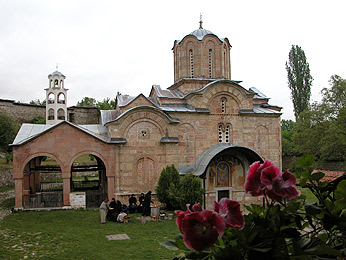
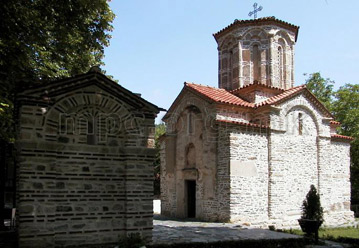
Rhizomes
These days the MOC is celebrating the 40th anniversary of its independence after the World War 2. No doubts, important counting of time. Not unique, though. Since, the enlightening, birthgiving function of the Saints this area has given, is a centuries long. So also our responsibility towards them should be centuries long in the future. Whether we will manage to live up to their deposit and their mission, someone else will bear witness. The celebration is happening modestly and with dignity, as it is fitting. It becomes unimportant how it is staged, what the scenarios are like, what the PR-material is like. When we pause before the frescoes in “St Sophia”, the ceremonial aspect gets a new semantic value, which opens the doors of the symbolical and the transcendent. And, under the guise of the formal celebration, reflecting on the cultural effects of what this heritage leaves to us, on the consequences for values, thought, morality and, if you will, for politics as well, I asked myself what is it that is perhaps most important, particularly in the last 15 years, which is yet to make its deep and thorough mark in this culture. Perhaps the most important aspect of the MOC, which somehow within the frames of this celebration was neglected, is the renewal and revival of monasticism and of the monastery arena for struggle and realization of the person. Monasticism is the most conscientious aspect that the rhizomatic nature of faith can offer. It is the tissue in which we can find all about what I have written above.
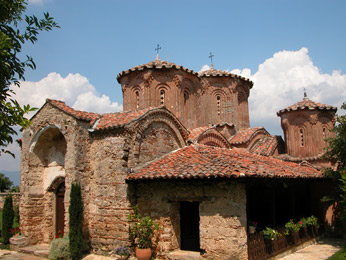
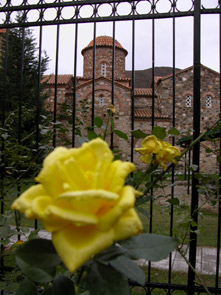
Monastic silence
The fact that there exists a renewed monasticism, which, I hope, is yet to be articulated and socially marked and verified, is a fact of it that it is possible for a clear and precise structure to exist, a constitution that will offer constructive freedom and justice, and that it is, nonetheless, possible even today to mark out routes which will promote the principles of community and solidarity. The monasticism in Macedonia is that pelican’s precious feather, so brittle, yet so strong, which encrusts and writes the most beautiful images and associations of what is and of what we would like to be. What is lost in the cruel neoliberalism can be found with certainty in the monasteries, which have been patiently waiting for us to discover them, through the mission of the monastics… Which one of us can boast with such knightly commitment!? Reflecting the eyes that observe them, the monastic struggle is almost a bordering experience for us. The idea that someone sometimes walks on the edges of what spirit and the world define as possible is exceptionally important, especially for a “flock”, as is ours, which wanders with an almost shattered identity, which wages war against humility received from the political pseudo-pastors. So thus, nearly untouchable, and yet so much here, rooted, anchored deeply in the idea about the social impulse, for Macedonia they are becoming maybe one of the most valuable toposes which can be touched with the spirit and which can bring back hope. Therefore, monasticism in this country should be thought of as prophecy that foretells us a constructive future and strategically important story. They are writing this nation’s collective letter of love and friendship, of yearning after a system, of it that the fall into loss of meaning can get another face, of it that freedom is what is being created at every moment, in sweat and painstakingly. The silence they offer as an option, speaks much more than the noise we live, and resounds the semantic values of the unspoken and of the logorrheatic meaninglessness, which bombards us in politics, in science, in the media, at universities, in love and at all levels of exchange. The thought that they exist and are active in this country, gives strength.
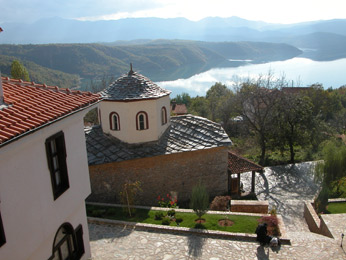
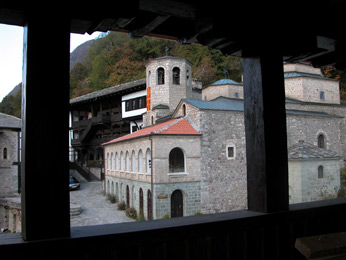
Iskra Gešoska
Source: The Vreme, № 1134, 25-7-2007